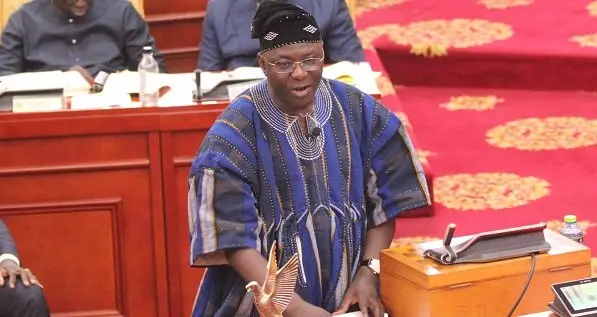By: Emmanuel Amoah

Ghana’s Finance Minister, Dr. Mohammed Amin Adam, has made an urgent appeal for funding to address a severe food security crisis that could affect over 900,000 farmers in eight regions across the country.
This crisis has been triggered by a prolonged drought that has severely impacted crop production, particularly in the Northern, Upper East, North East, Savannah, Upper West, Bono, Bono East, and Oti regions.
In a recent press release, Dr. Adam revealed that the Ministry of Finance received a letter from the Ministry of Food and Agriculture (MoFA) on August 19, 2024, detailing the grave consequences of the ongoing drought. The resulting food shortages have not only contributed to a decline in GDP but have also heightened security risks and the potential for extremism in the affected regions.
“The Ministry has received a letter, dated August 19, 2024, from the Ministry of Food and Agriculture (MoFA), requesting funds to implement a National Emergency Response Programme to avert an impending food security crisis,” stated Dr. Adam.
According to MoFA, an estimated GH¢8.36 billion is urgently needed to implement measures that could prevent a full-scale crisis. These measures include purchasing existing stock from farmers, urgently importing grains, and providing cash transfers and input support to the affected farmers.
Dr. Adam, however, acknowledged the government’s financial challenges, noting that the requested amount is an unplanned expenditure not accounted for in the 2024 Budget. “The government cannot finance the GH¢8.36 billion request solely by reallocating existing budget lines in the 2024 Budget,” he explained.
In response, the Finance Minister has sought approval from the Finance Committee for the release of GH¢500 million from the Contingency Fund. If approved, this funding will be supplemented by additional support from development partners and a realignment of fiscal operations within the current budget framework.
Dr. Adam stressed the urgency of the situation, warning of the increased risk of extremism in the five Northern Regions and three Transitional Zones if immediate action is not taken. “Your prompt approval is essential for the government to implement the necessary measures to address this crisis,” he urged.
This request for emergency funding highlights the seriousness of the food security crisis facing Ghana, as the country contends with the effects of climate change and other external challenges.
The government’s quick response will be vital in mitigating the adverse impacts on both the economy and national security.





